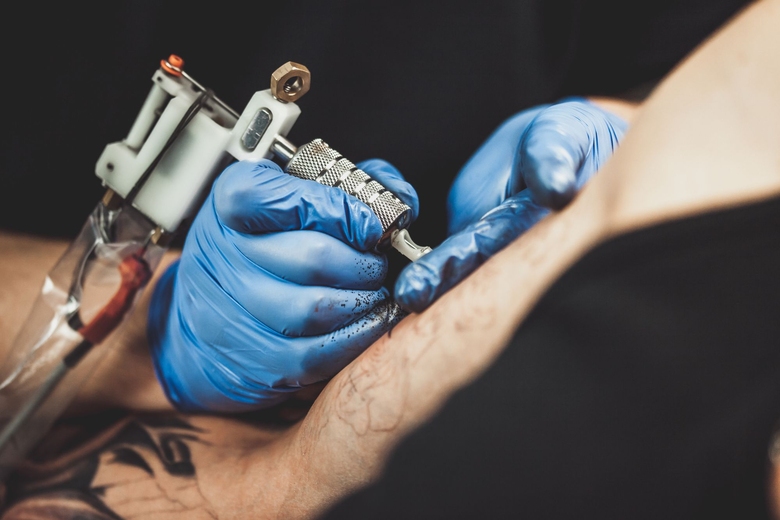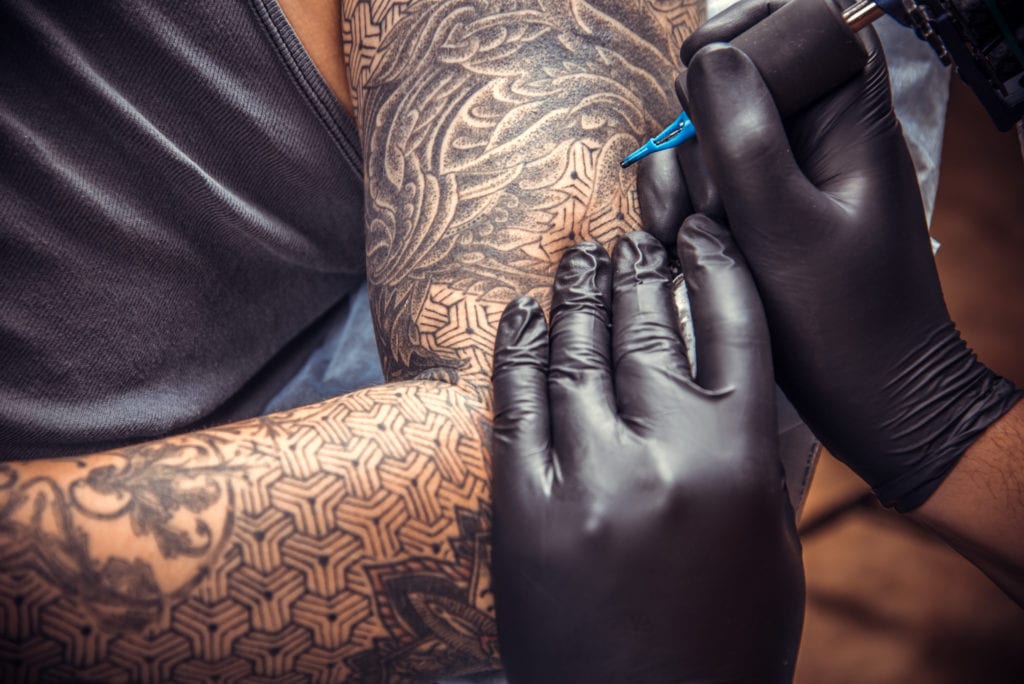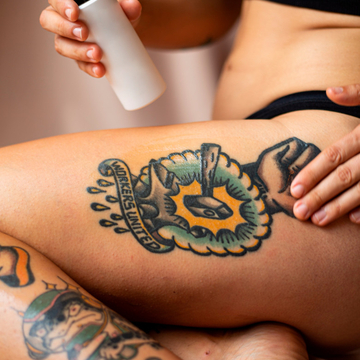Do Tattoos Increase the Risk of Skin Cancer?

When discussing tattoos with family and close ones, you may often hear comments about the harm of tattoos – how they adversely affect the body and damage one's health. One of the most common arguments is that tattoos increase the risk of skin cancer.
In short: no, this is not true. Tattoos do not cause skin cancer, and there is no direct link between them. However, it's not entirely clear-cut. Some studies suggest an indirect influence, while others claim there is no effect at all.
It's important to note that we are discussing only tattoo ink. The actual process of getting a tattoo or the disinfectants used is not directly related to skin cancer unless you have specific contraindications, as discussed in one of our previous articles.
What Scientists Say
Scientists conduct research to determine if tattoos have any impact on skin cancer.
For example, scientists in Rome found 30 cases of cancer development after individuals had gotten tattoos, which they then linked to the pigments used for the tattoos. Out of these cases, dark blue was associated with 10 out of 30, black with 8 out of 30, and blue with just 3 cases. The color of the ink wasn't specified in the other 9 cases. However, they couldn't establish a direct link between tattooing and cancer. They believe other factors are at play.
In 2015, Korean scientists examined a man who developed malignant tumors only in the area of his chest tattoo. Doctors believe that during the tattooing process, the needle penetrated existing but unnoticed cancerous tumors. As a result, the needle dispersed these cancer cells throughout the tattooed area.
In 2017, a Franco-German study found titanium dioxide in tattoo pigments. This substance is a food additive with the code E171 and is commonly used in tablets and sweets. It was previously considered harmless, but in 2017, French scientists conducted an experiment which revealed that titanium dioxide accumulates in the body and leads to tumor formation.
From January 1, 2020, this additive is completely banned in France, although no such ban exists in other countries.

While research did not show a direct connection between pigments with titanium dioxide and an increased risk of cancer, scientists drew other conclusions. They found that tattoo ink can accumulate in lymph nodes, which can cause them to enlarge. Enlarged lymph nodes are sometimes mistaken for a sign of cancer, leading to misdiagnosis.
Cheap, poor-quality inks can be dangerous if they contain heavy metals and toxic substances. For instance, blue inks containing cobalt and aluminum or red inks containing mercuric sulfide. Various shades may include lead, cadmium, chromium, nickel, titanium, and other heavy metals. High-quality inks use natural dyes that do not harm the body.
What to Consider Before Getting a Tattoo
Pay attention to the inks your tattoo artist uses – if they are unfamiliar or seem subpar, avoid the session. The best inks are produced in the USA, the European Union, and Russia. Talk to your artist and inquire about the inks they use.
Ask your relatives if anyone in your immediate family has had skin cancer. If so, it may be better to abstain.
If you have had any previous growths, even benign ones, consult with an oncologist.
Consider if you have any other skin conditions, as a tattoo can exacerbate the situation.

Conclusions
There is no consensus on the connection between tattoos and skin cancer. There is not enough data to draw any conclusions since comprehensive scientific studies have not been conducted. The cases of cancer after getting tattoos described in literature are not directly linked to the tattoos themselves. Typically, they are related to pre-existing conditions for which the tattoos became a catalyst.
If you have a higher risk of developing skin cancer, it may be best to refrain from getting a tattoo to avoid any potential risks. If someone in your immediate family has had skin cancer, it's a good idea to consult a specialist and discuss the risks. For the average person, tattoos do not increase the risk of skin cancer.







Comments (0)